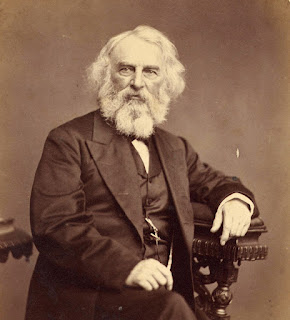Search This Blog
Click 4 Freedom is a blog set up to help the people defense force and refugees in Karenni State.
Featured
For the Fallen
For The Fallen
With proud
thanksgiving, a mother for her children,
England mourns for
her dead across the sea.
Flesh of her flesh
they were, spirit of her spirit,
Fallen in the cause
of the free.
Solemn the drums
thrill: Death august and royal
Sings sorrow up into
immortal spheres.
There is music in the
midst of desolation
And a glory that
shines upon our tears.
They went with songs
to the battle, they were young,
Straight of limb,
true of eye, steady and aglow.
They were staunch to
the end against odds uncounted,
They fell with their
faces to the foe.
They shall grow not
old, as we that are left grow old;
Age shall not weary
them, nor the years condemn.
At the going down of
the sun and in the morning
We will remember
them.
They mingle not with
their laughing comrades again;
They sit no more at
familiar tables at home;
They have no lot in
our labour of the day-time;
They sleep beyond
England's foam.
But where our desires
are and our hopes profound,
Felt as a well-spring
that is hidden from sight,
To the innermost
heart of their own land they are known
As the stars are
known to the Night;
As the stars that
shall be bright when we are dust,
Moving in marches
upon the heavenly plain,
As the stars that are
starry in the time of our darkness,
To the end, to the
end, they remain.
Laurence Binyon

Analysis
The first stanza
establishes a patriotic element. Binyon personifies the United Kingdom as a
"mother," and British soldiers as its "children." The poem
remembers the deaths of soldiers while justifying the cause of their deaths as
"the cause of the free": a theme carried throughout the rest of the
poem.
The monosyllabic words of
the second stanza echo "solemn, funereal drums."The stanza, like the
first, espouses themes of "martial glorification." It describes war
as "solemn," with a "music" and "glory" and
compares death to "celestial music."
The third stanza refers
to soldiers marching to fight in the Battle of the Marne. It is less known than
the fourth,despite occasionally being recited on Remembrance Day.The soldiers
are "straight of limb, true of eye, steady and aglow," and though
facing "odds uncounted" are "staunch to the end."
The fourth stanza of the
poem was written first,and includes the best known lines in the poem.The
original words "grow not old" are sometimes quoted as "not grow
old." It has also been suggested that the word "condemn" should
be "contemn," however "condemn" was used when the poem was
first printed in The Times on 21 September 1914, and later in the anthology The
Winnowing Fan: Poems of the Great War in 1914. If either publication had
contained a misprint, Binyon had the chance to make an amendment. The issue has
arisen in Australia, with little or no debate in other Commonwealth countries
that mark Remembrance Day.The line commencing "Age shall not weary
them" echoes[citation needed] (probably unconsciously) Enobarbus'
description of Cleopatra in Antony and Cleopatra: "Age cannot wither her,
nor custom stale".
In the fifth stanza,
Binyon speaks of loss and mourns the deaths of soldiers who left behind
"familiar tables" and "laughing comrades." In the sixth
stanza, the soldiers are described as achieving a sort of "bodily
transcendence" in their death. Finally, the seventh stanza compares dead
soldiers to stars and constellations, that remain traces of being soldiers,
moving in "marches". This memorializes the dead while keeping their
role as soldiers for the British Empire present; "an empire that, by
association with these eternal soldiers, makes its own claims on a sort of
immortality."
Source > https://en.m.wikipedia.org/wiki/For_the_Fallen
Comments
Popular Posts
The Builders by Henry Wadsworth Longfellow
- Get link
- X
- Other Apps


😢😢
ReplyDeleteSalute to all the fallen heroes who give their lives during spring revolution.🥀
Xo Sad.
ReplyDeleteMy deepest condolences and full respect to our fallen heroes of spring revolution.
ReplyDeleteI do agree with you 😊
ReplyDeleteMorning guys.
ReplyDeleteSalute to all the fallen stars of our spring revolution.😪
ReplyDeleteHave a great day. Thanks for sharing.
ReplyDelete